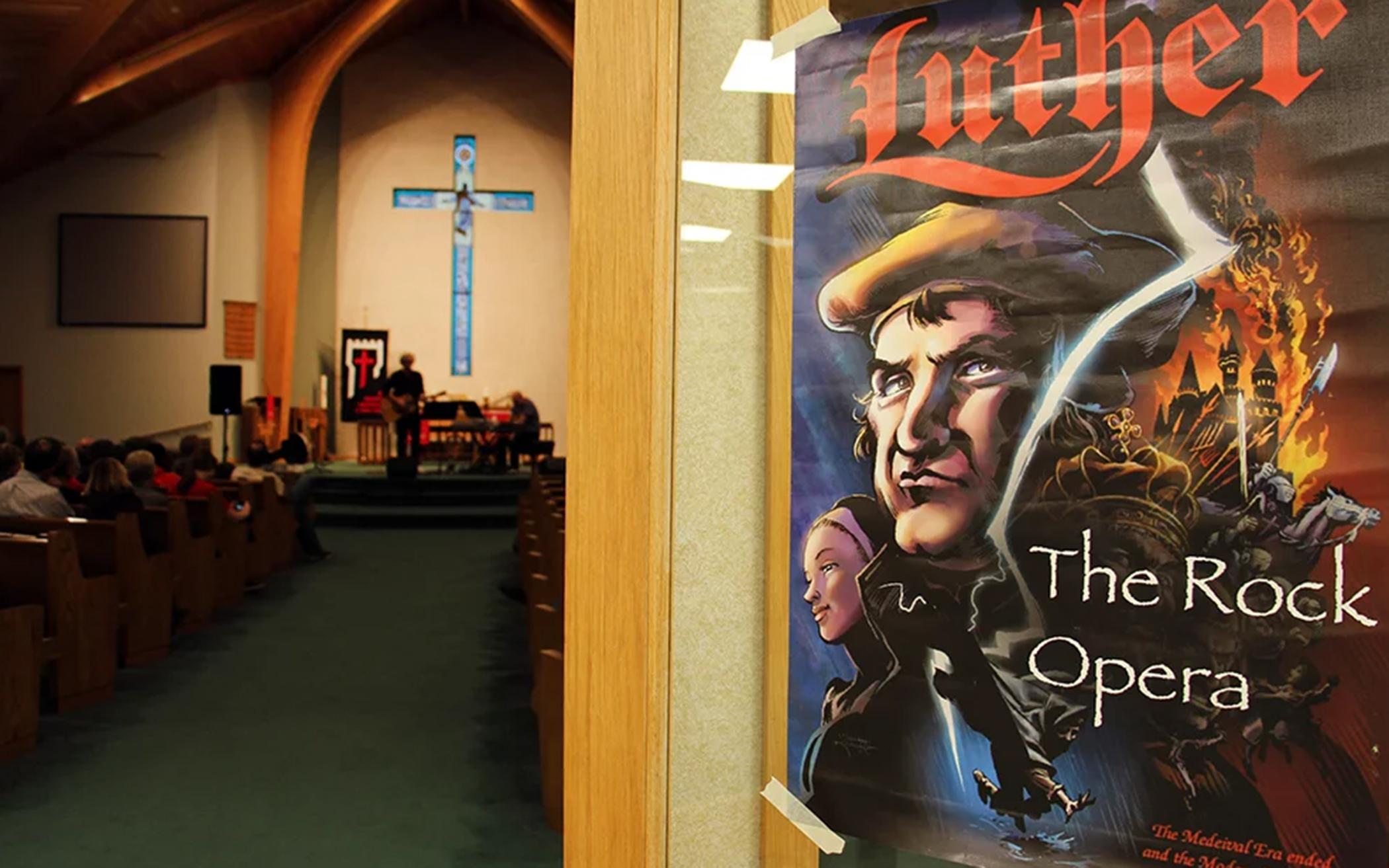The Protestant Reformation was a little bit like social media, featuring charismatic influencers, cutting-edge technology and viral content, according to Michael Bridges.
It started when a man decided to stay up late and update his status, posting 95 things on his wall. He hoped his friends would like, comment on or share them.
Instead, as so often happens on Facebook and other social media platforms, a lot of people started arguing. “Little did he know, the church would unfriend him,” Bridges said.
That man was Martin Luther. His post—the 95 theses the German monk-turned-reformer reportedly nailed to the Castle Church door in Wittenberg, Germany, on Oct. 31, 1517—kicked off the Protestant Reformation.
Bridges’ retelling of the start of the Reformation kicked off “Luther: The Rock Opera,” an hourlong romp featuring 24 upbeat songs performed by Bridges and bandmate George Baum against the backdrop of about 300 illustrations from “Luther,” the graphic novel by Rich Melheim.
Bridges and Baum retired from touring three years ago after performing together as Lost and Found for 25 years. Then Melheim, a friend of the band, suggested they write a rock opera to accompany his graphic novel.
“Luther: The Rock Opera” debuted to about 600 people last year at Stadthaus Theater in Wittenberg. This fall, Lost and Found brought performances to five cities across the Midwest U.S.
On Reformation Sunday (Oct. 28), Lost and Found ended its mini-tour at St. Paul Evangelical Lutheran Church, a Lutheran Church-Missouri Synod congregation in the south suburbs of Chicago that stands across the street from its original building, dating back to the 1800s.
The Reformation still resonates today for both Christians and non-Christians, Bridges said, because Luther “spoke truth to power.”
“What, to me, is really meaningful about this whole story, what’s meaningful about doing the rock opera, is that this solitary monk speaks three words—‘Here I stand’—and helps the world—Western civilization, at least—move from the medieval to the modern age,” he said. “He brought into existence some of the things that we value today by standing up to the authorities.”
Last year, Lutherans and many other Protestants the world over celebrated the 500th anniversary of the start of the Protestant Reformation, marking the date Luther posted his 95 theses.
© 2018 Religion News Service
The Banner has a subscription to Religion News Service and occasionally re-publishes articles of wide Christian interest, according to the license. This article has been edited for length. The original can be read here.
About the Author
Religion News Service is an independent, nonprofit and award-winning source of global news on religion, spirituality, culture and ethics.

